Our Previous Class A
|
Our Current Class C
|

A 2015 Forest River Georgetown 328TS. 35' Class A with 3
slides. 5000 lb. towing
capacity. |
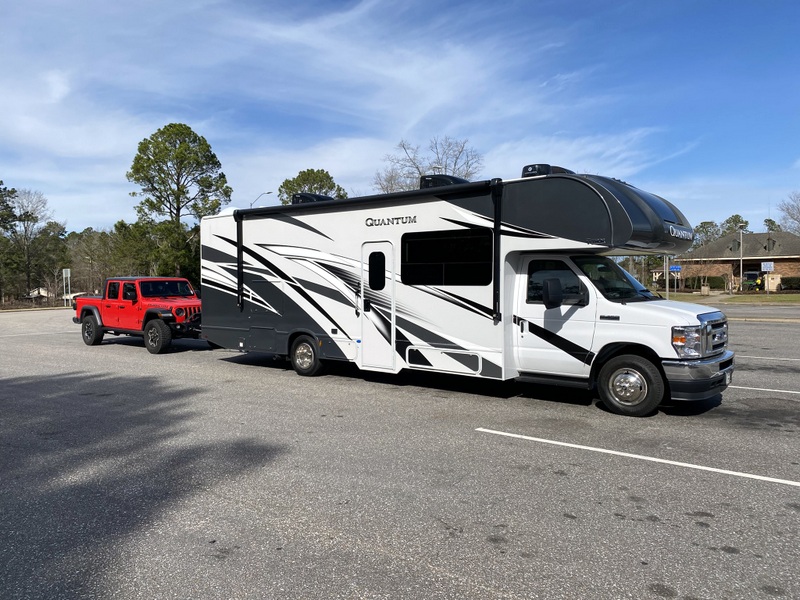
A 2023 Thor KW29 Quantum. 31' Class C with 2 slides.
7500 lb. towing capacity. |

The floor plan. Notice the huge amount of wasted space in the
living room area. Also, take a look at where the TV is located
and where the couch is situated. |
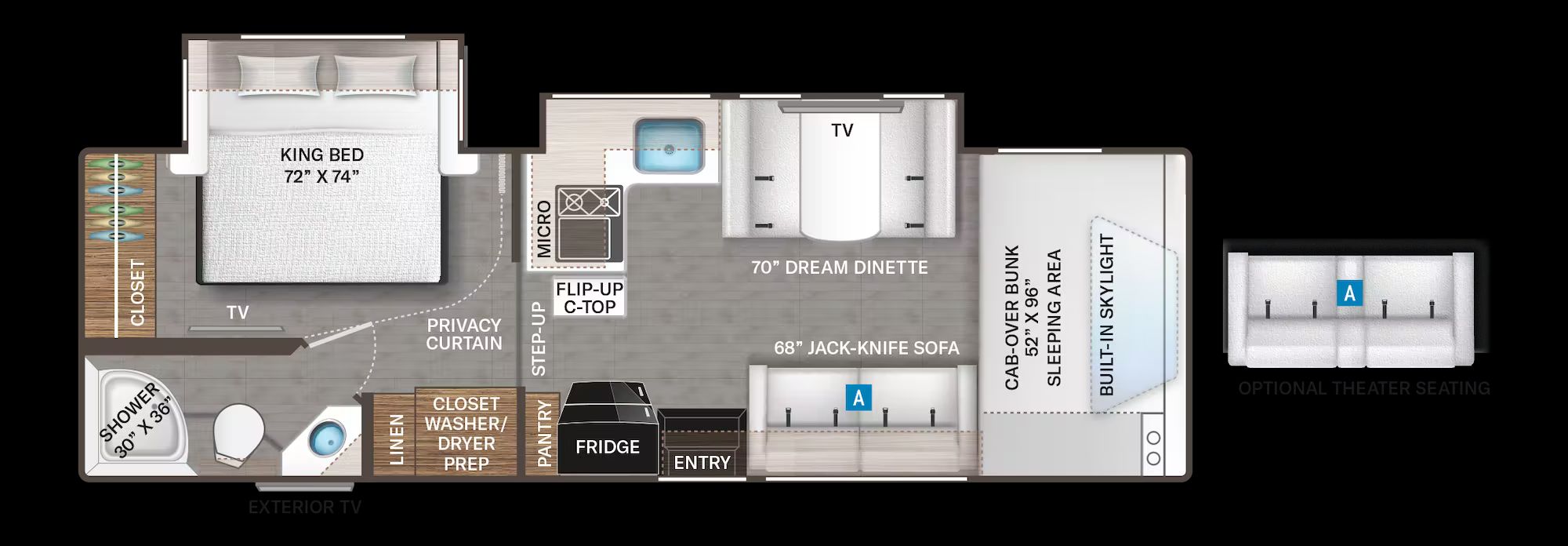
This floor plan is about 4' shorter. Very little wasted space.
Many of the same features, but appears to be designed by someone who
actually RVs. Note where the theater reclining seats are, and
where the TV is located. |
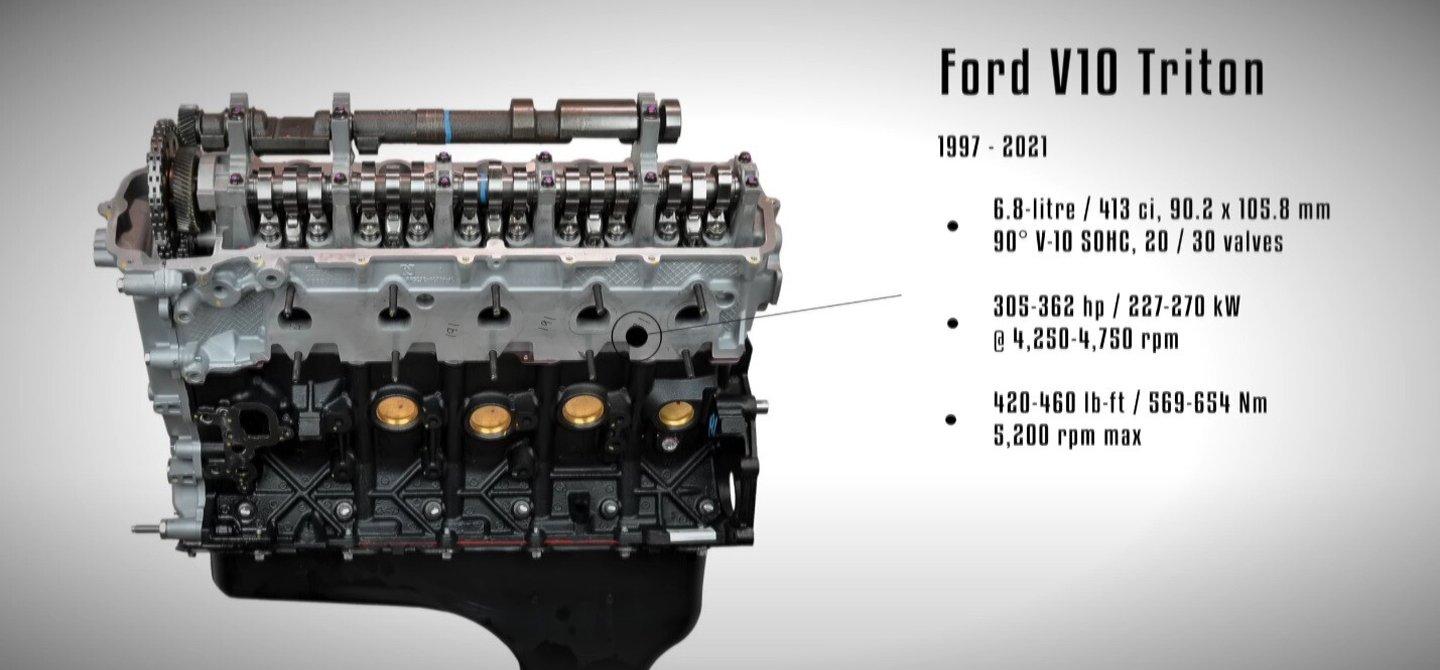
Both of my Class As had the Ford V10 on the F53 chassis. 6.8L,
with sufficient power to keep up with traffic, and merge onto
highways. Changing the oil and filter sucked. The filter
was located over chassis components, as was the drain plug.
Messy job. The hood barely opened, and there wasn't enough
room to even get a quart container into the fill tube.
Absolute stupid design. I averaged 5-6 MPG towing a Jeep. |
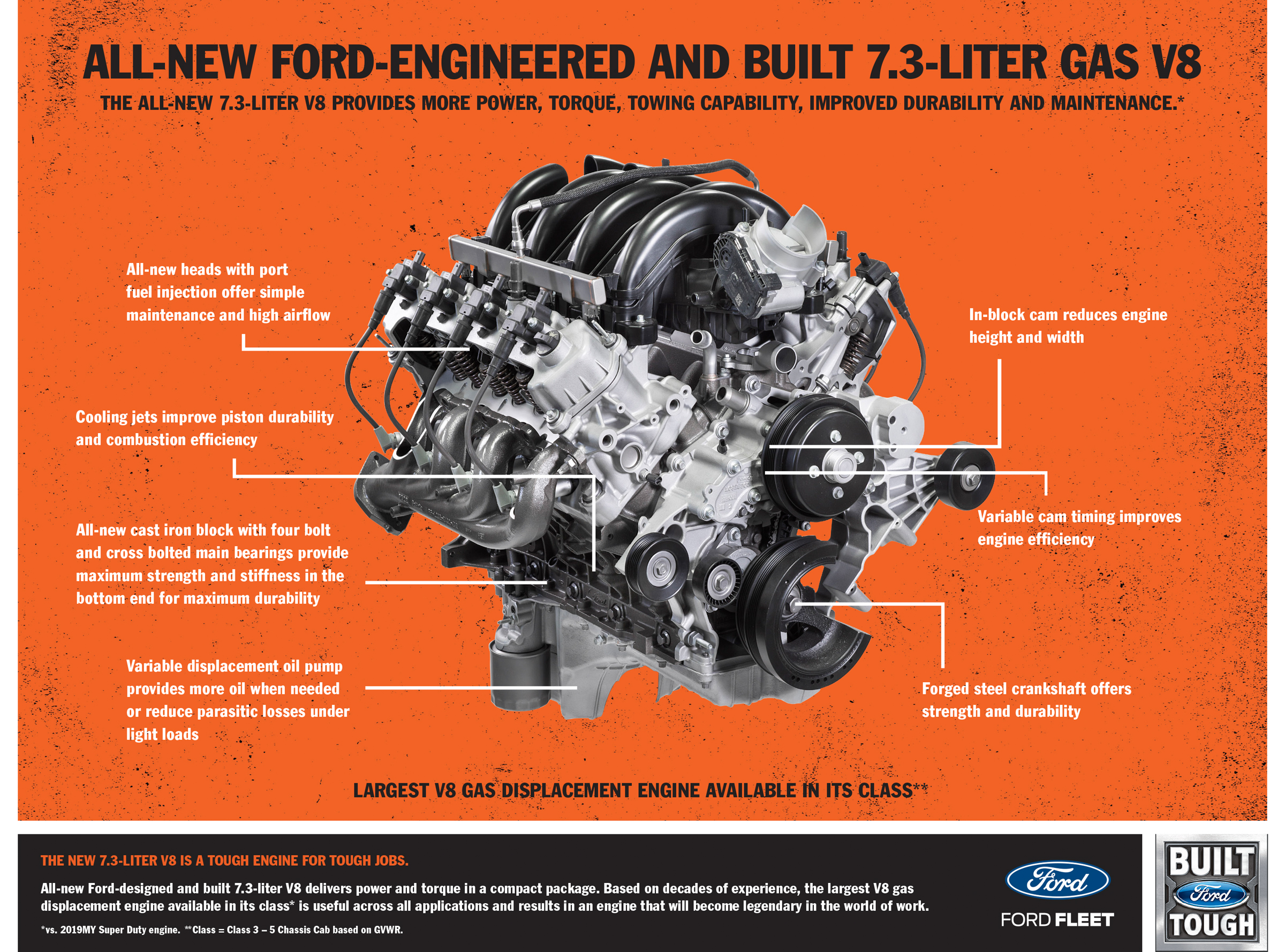
The new Class C came equipped with Ford's new larger 7.3L V8.
Two less cylinders, but more overall displacement. It has been
nicknamed the "Godzilla" motor. Plenty of power. This is
the engine being used in all their fleet vehicles, and is over built
for RVs, which is not a bad thing. The oil pan is fully
exposed, and the drain plug and filter are right next to one
another. Best layout I've ever seen, and very easy to do
preventative maintenance. The chassis is an E450 cutaway
model, with the MORryde suspension. I'm averaging 8-9 MPG
towing a Jeep. |
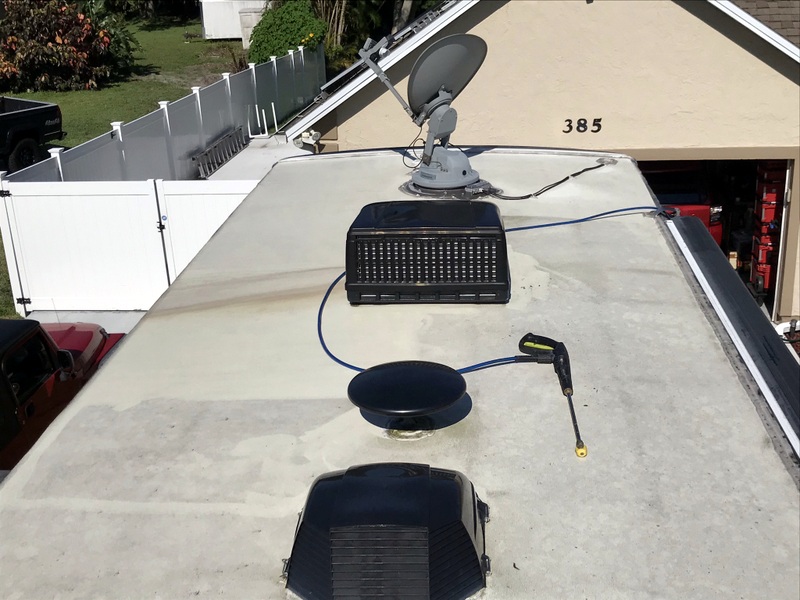
One piece fiberglass roof, with two 13,500 BTU A/C units.
While this sounds like a plus, it wasn't. Forest River had
issues with the Filon material wrinkling and cracking along the
curved radius. Mine had this issue, and my year RV wasn't
covered, according to Forest River. The following year was.
Consequently, I can't recommend their products. Post sale
customer support is paramount, especially for an admitted design
flaw. One of the A/C units failed, and I replaced it.
Still had a very hard time keeping up with the summer heat load in
Florida. |
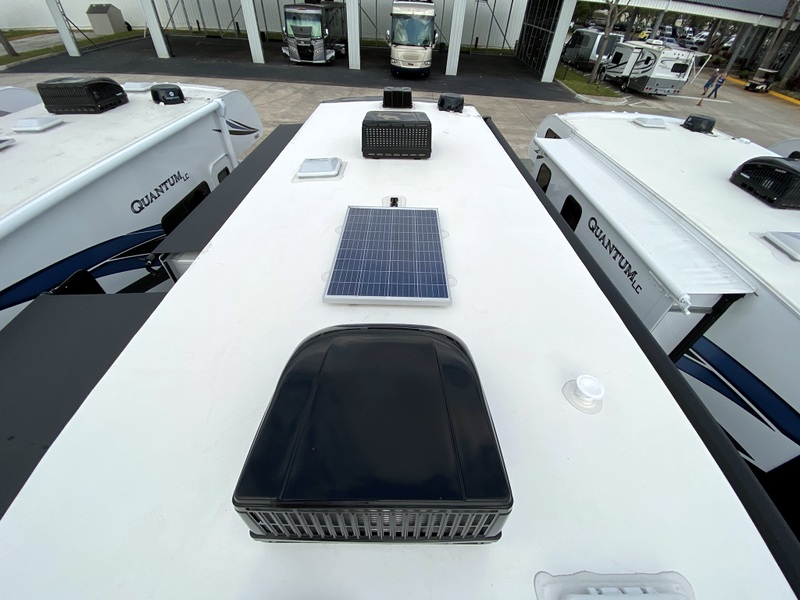
One piece membrane roof. Two 11,000 BTU high efficiency A/C
units. While these units had less cooling capacity on paper, they
moved as much air as the larger ones, and put out much colder air.
These work very well, and actually cycle on/off throughout the day.
It even came with a 100 Watt solar panel, and charge controller. |
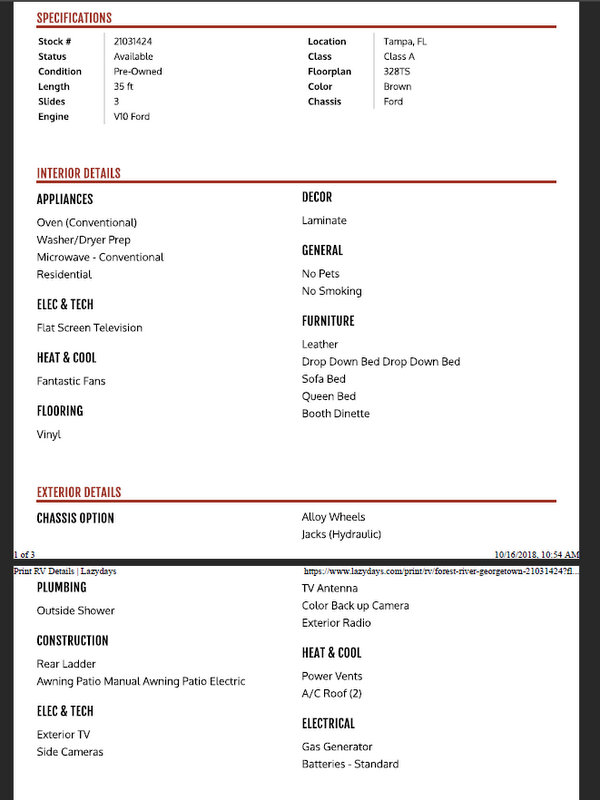
The online spec sheet for my specific RV. |
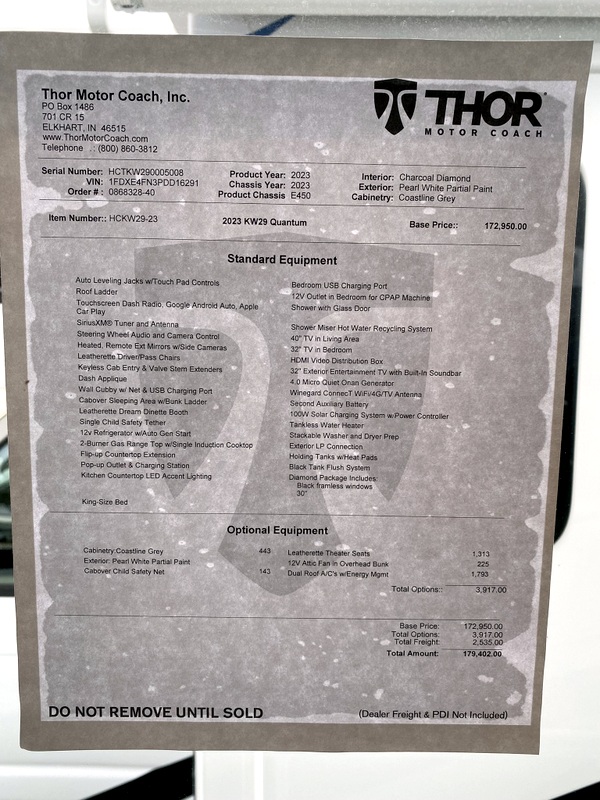
The window sticker for the Class C. I paid about $55K less
than the sticker price. |

With the slides pulled in, there is a narrow path to gain access to
the back of the RV. The bed CAN be used with the slides
retracted. |
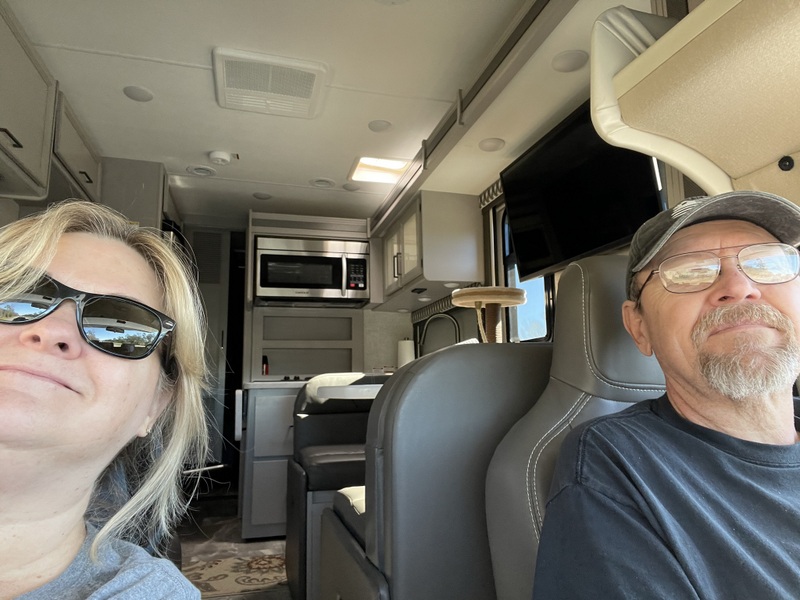
With the slides pulled in, there's a little more room to reach the
back of the RV. However, the mattress folds with the slide in,
and CAN'T be used. But the dinette bed, and the overhead bunk
can. |
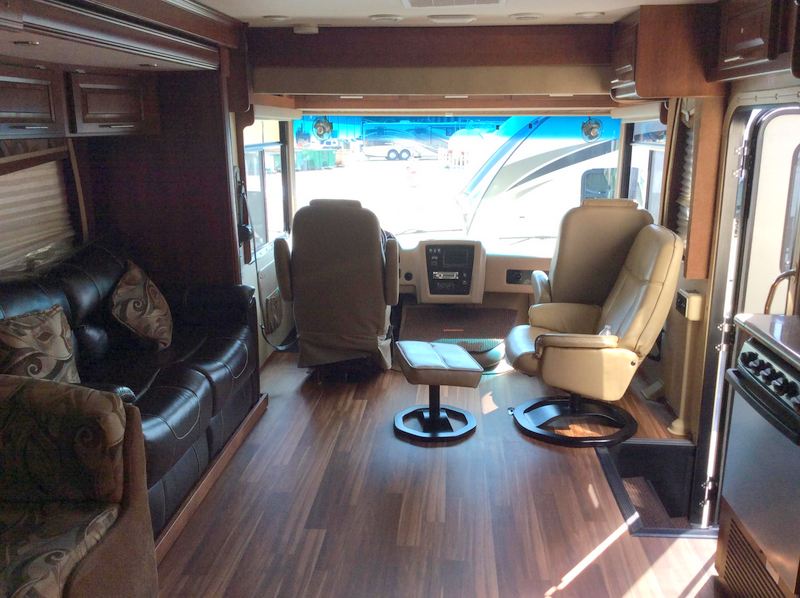
Middle of the RV, slides out, looking towards the front. Big open
floor plan. Look what's across from the couch. |
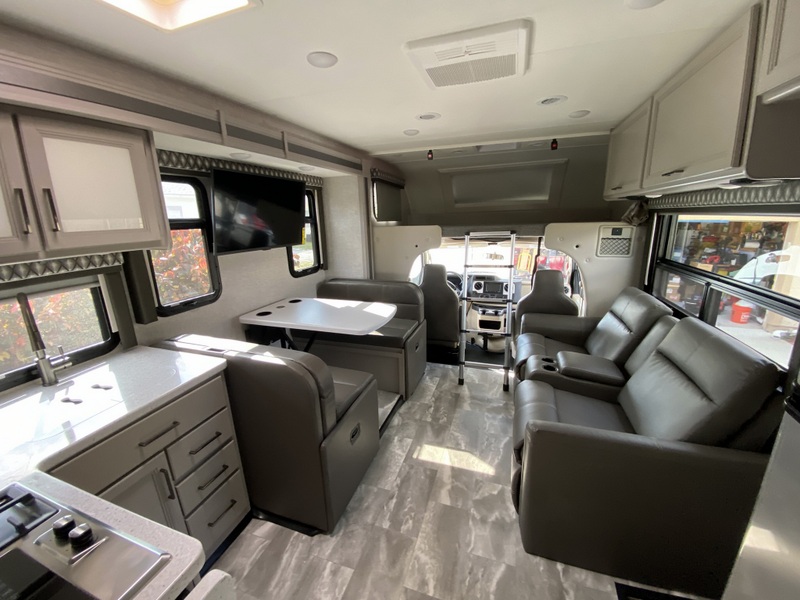
Slides out, looking forward. Less open floor space. Very
comfortable seating, directly across from the dinette and 42" TV. |
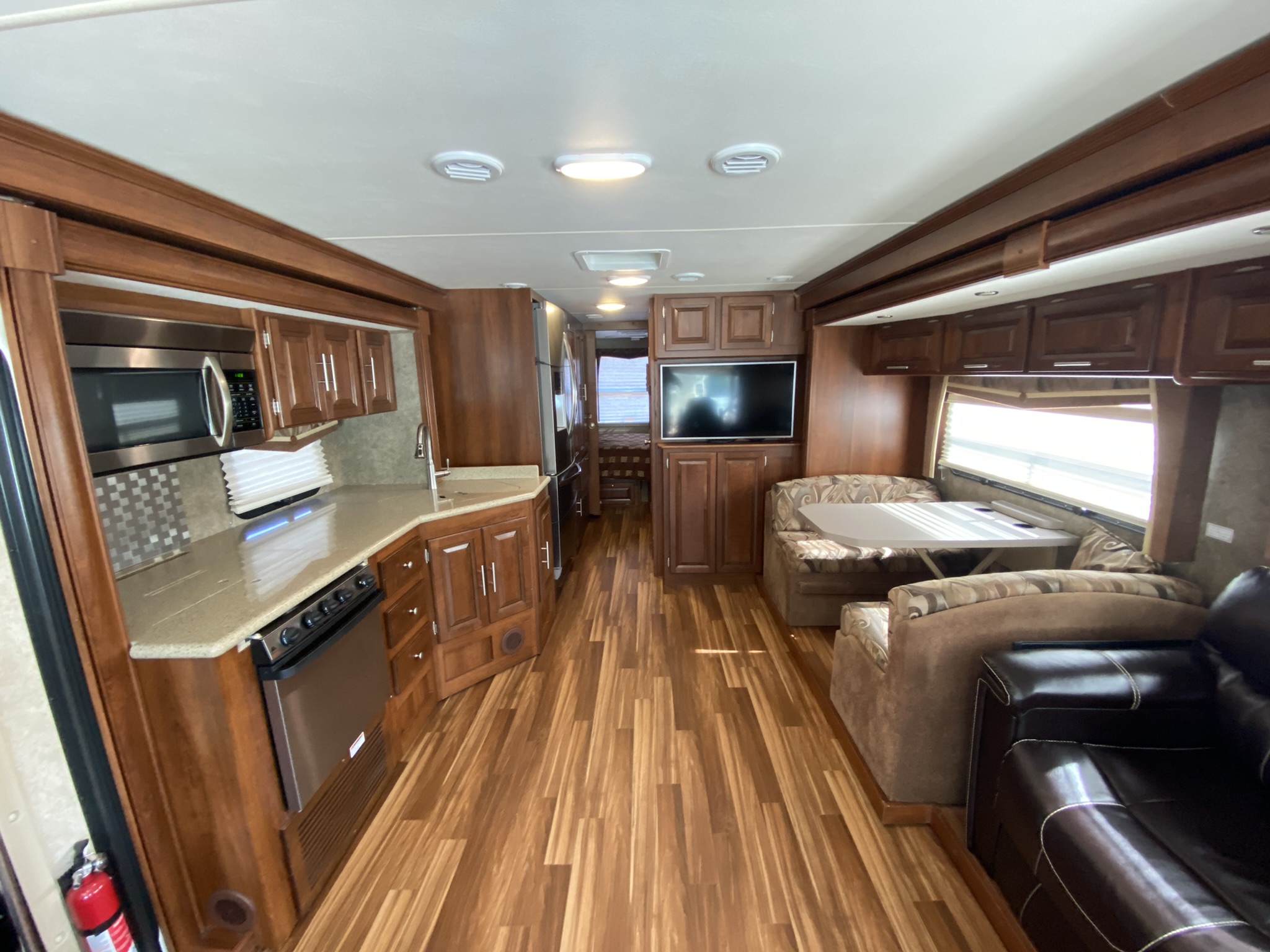
View from the front, looking towards the rear. All slides out.
Look at the TV location. |
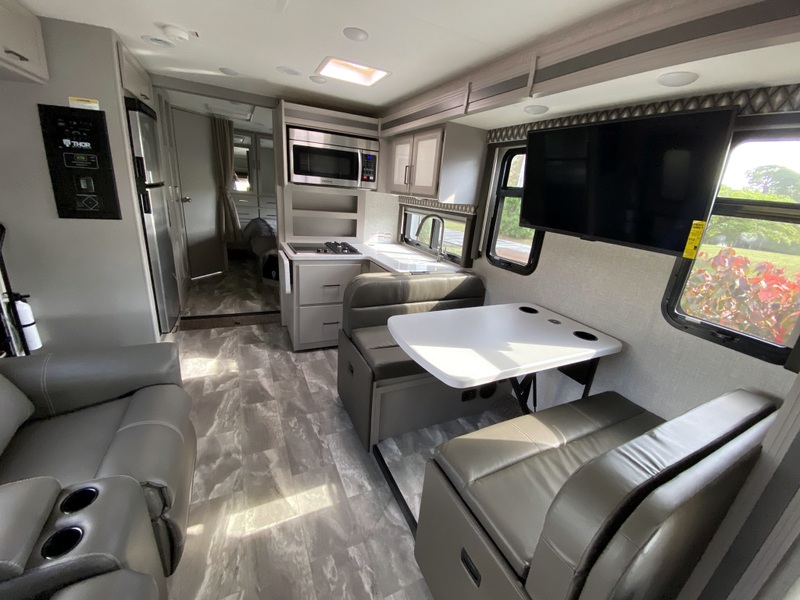
Same view, both slides out. Much less open floor space, but plenty
of room. |
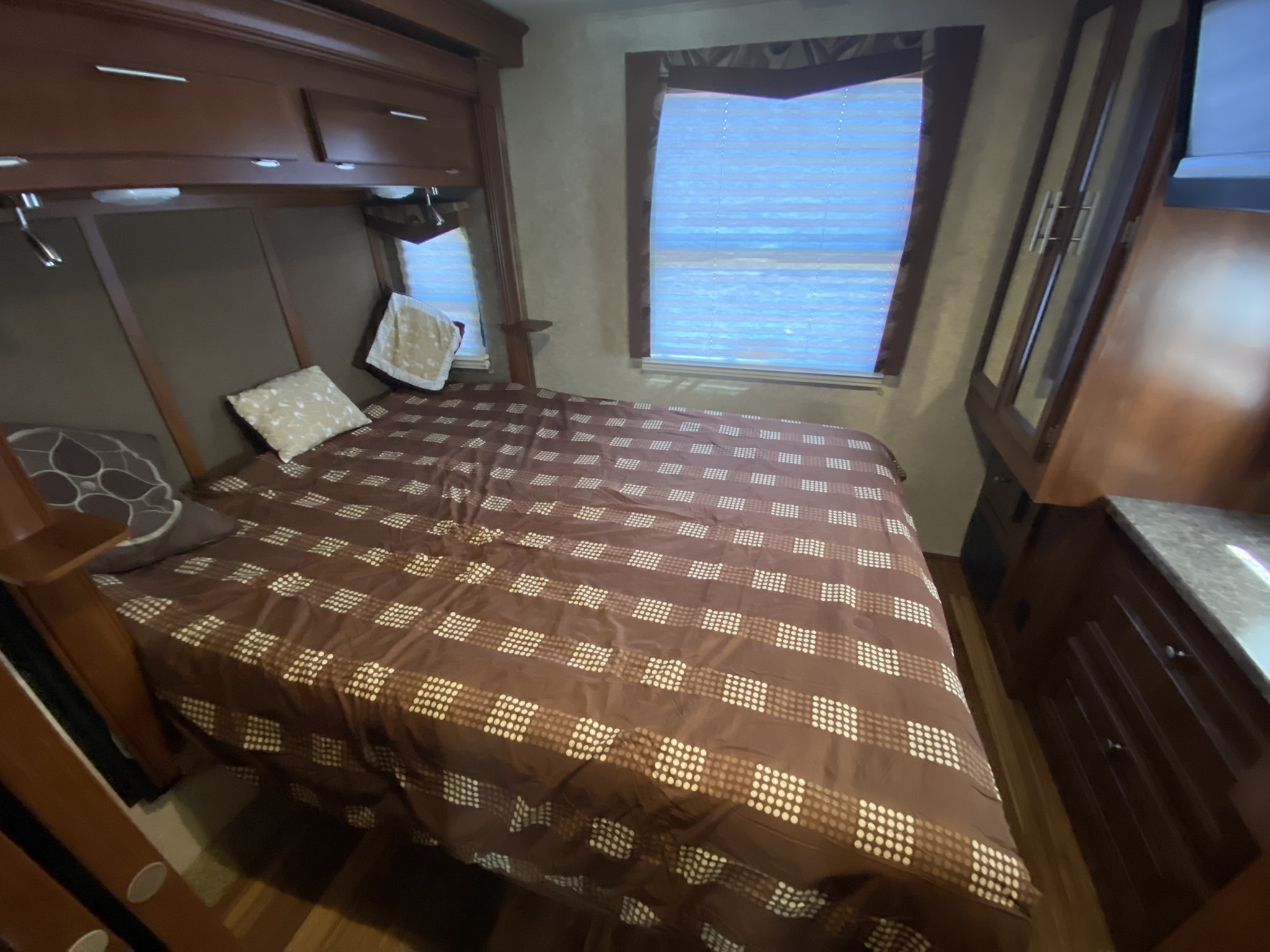
This is the most surprising thing for me. Both of my Class As
(36' and 34'), only had a queen bed. There also was no room to walk
around the far side. |

A real king sized bed. The last 1/3 of the mattress is hinged,
flipping back on itself when the slide is retracted. But once
it's laid flat, the seam can't be felt. We did add a 3"
mattress topper, making this bed more comfortable than our bed at
home. |
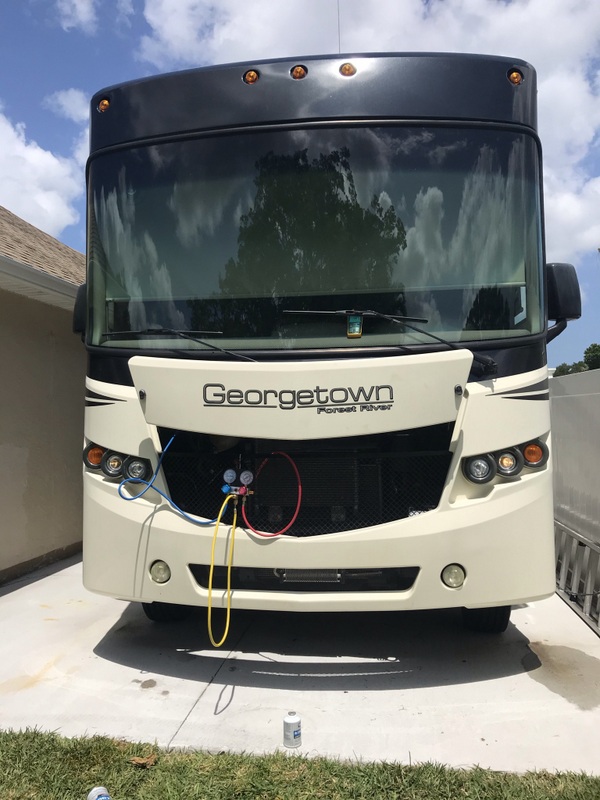
The dash air was an Evans Tempcon RV system. They are known
for being lackluster, even when new. I replaced the expansion
valve on ours, which only slightly helped. Both roof top A/C
units, and generator, had to be run to keep the temperature
comfortable while driving, and it struggled. |
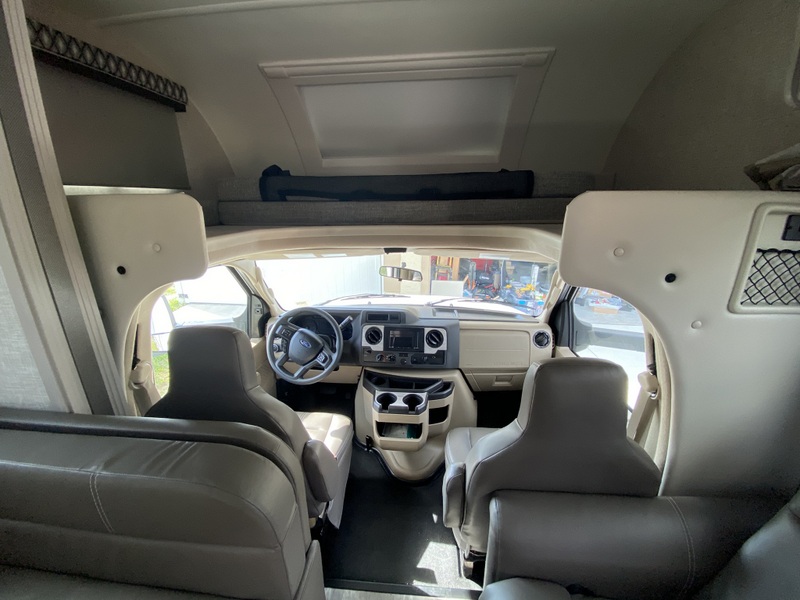
The dash A/C on the E450 chassis is the same one in the fleet
vehicles. Extremely reliable and puts out COLD air. You
don't need to run the generator and roof top A/C units to keep the
cab cool while driving in the summer heat. We do, but that
reduces the cool down time of the entire RV once we setup at our
destination. I end up making it so cold, even with the fan on
low, my wife grabs a blanket. |
There are some other differences, like the
size of the generator. The Class A had an Onan 5500W model, the
Class C has a 4000W model. But the C has smaller, more efficient
roof top A/C units, and doesn't require the larger generator. The
appliances in the Class A were residential size. Big fridge, even
larger than the one in our house, but only ran on AC power. The
one in the Class C is 10 cubic foot, a reasonable size for an RV, and
operates on DC power. The A had an oven, and a separate large
microwave. The C has a combination convection microwave, about the
same size. The A had gas burners. The C has two gas
burners, and two induction burners, which are incredibly fast.
Outside, the Class A wins hands down for under floor storage. The
bays are taller. Consequently, the floor is higher off the ground,
making the driver that much higher from the road. The C has
shorter storage bays, but also makes for a shorter RV. It's 11' 2"
tall, vs. over 12' for the A. Both have about the same 7'
ceilings.
The F53 chassis, used on Class As has been around a long time.
Handles poorly, even with upgrades. It was exhausting to drive as
I was constantly fighting it's tendency to wander. Tires are
larger, and have to be balanced and installed at a truck tire shop.
Prices are much higher too. The E450 chassis is used in all of the
Ford fleet vehicles that have a van style front end. This one came
with the MORryde suspension, and handled well right from the factory.
I've done a couple of upgrades too, and my wife can drive it. It's
not as intimidating as the Class A. The older I get, the more
important it becomes that we can both break down camp, and drive the RV
home.
So if you're in the market for an RV, do yourself a favor, go look at
the Class Cs as well. The days of a Gaucho style bed are gone.
Class Cs have real beds now. Some Class Cs can be even more
luxurious than a Class A. Similar features can be available in
both. I was also pleasantly surprised when my annual RV insurance
dropped almost in half, likely due to the weight class difference. |



















